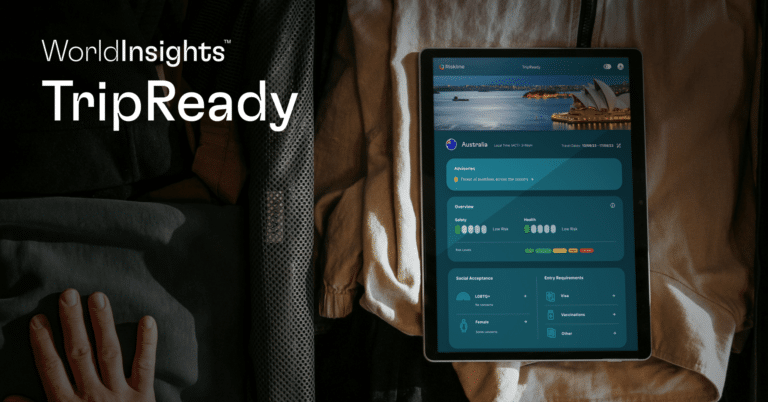By Farhan Rafi and Claudia Gualdi
A digital nomad is someone who performs their job entirely over the internet while travelling. The number of digital nomads tripled during the COVID-19 pandemic, between 2019-2022, when many companies had to shift to remote work. Today, around 16 percent of companies worldwide allow their employees to work fully remotely. At least 40 million people around the globe identify as digital nomads.
The rise of digital nomads directly adds to the growing market for travel agents and Travel Management Companies (TMC). Coupled with the fact that there are over 105,000 travel agencies worldwide, including at least 30,000 agencies in Europe alone, means that the industry is becoming highly competitive. To maintain a competitive edge in the industry, TMCs must take into account several factors.
Here are a few key points to consider in navigating the rise of digital nomads:
Visa requirements
Although known for hopping from country to country, around 66 percent of digital nomads prefer to stop in a single place for a few months stay. A visa is usually required. However, a working visa is often difficult to obtain as a digital nomad. Many countries require a local company to sponsor the visit, proof of running a regular business, a work permit or other documents.
Many digital nomads are notoriously working on tourist visas or visa-free travel schemes to bypass lengthy bureaucratic requirements and expensive fees associated with work and business visas.
Despite the low chances of getting caught in legal troubles in foreign countries, travel agents or TMCs should direct remote workers to the appropriate visa option as part of the duty of care. Fortunately, there are over 66 countries that offer digital nomad visas.
Many digital nomad visa applicants face a common obstruction. It is the requirement for a minimum yearly or monthly income, which can be quite steep. Travel agents and TMCs should be able to guide or help clients get an appropriate digital nomad visa. The visa should be for a country that meets a client’s personalised needs and conditions. Therefore, developments in visa requirements and trends deserve careful attention.
Are there any countries that offer visa for digital nomads?
For example, South Korea recently launched a Visa for digital nomads. It requires applicants to have a steep minimum annual income of KRW 85 million (USD 63,400). Japan plans to launch a similar visa this year. It will also require a high minimum annual income of JPY 10 million (USD 65,900).
Alternatively, Malaysia and Spain offer digital visas with lower income thresholds. Malaysia’s digital nomad visa (DE Rantau Nomad Pass) requires a minimum yearly income of USD 24,000, while Spain’s Digital Nomad Visa requires EUR 25,700 (USD 27,800). The more lenient requirement helps both destinations rank high in popularity for digital nomads.
Now more than ever, many countries are dropping and easing visa requirements, in line with the global visa openness trend. Navigating through the rapidly changing visa requirements is no easy feat. The visa tool from Riskline offers TMCs and travel agents up-to-date and comprehensive visa information. It covers 225 countries and territories. Additionally, Riskline’s alerts give real-time updates on recent and upcoming changes in visa news.
Personalisation
Many travel agents and TMCs overlook a significant part of the digital nomad population when designing travel itineraries. This can be attributed to a generalised approach, focusing mostly on the majority of digital nomads, which are male (62 percent), caucasian (76 percent) and heterosexual (86 percent).
Ignoring digital nomads’ remaining demography may put off potential clients. These include women, LGBTQ+ people and those with dietary restrictions. To personalise a client’s profile for travel plans, TMCs and travel agents can collect data from both the destinations and the client’s preferences.
For example, consider a hot spot region for digital nomads, Southeast Asia. Thailand, Indonesia and Malaysia often being high up on the list of the most-visited countries by digital nomads. However, each destination has big implications for LGBTQ+ travellers. This is because each country greatly differs in social acceptance and laws for queer people.
Thailand’s Bangkok is also informally known as the gay capital of Asia. The country boasts high social acceptance for LGBTQ+ people and is set to legalise same-sex marriage. This makes Thailand an attractive destination for queer digital nomads. In contrast, Malaysia criminalises LGBTQ+ people under the Penal Code and shows relatively low social acceptance.
Indonesia does not criminalise LGBTQ+ people, but they are not widely socially accepted. This is true except in a few areas such as Bali, where there are gay bars and clubs. Outside of Bali province, there are little to no queer-friendly areas. With this information in mind, travel agents and TMCs can tailor travel itineraries for LGBTQ+ digital nomads better.
What about female digital nomads?
The same logic can be applied to female digital nomads. Travel agents and TMCs should know safer locations for women, especially for women when outside at nighttime. They should make travel itineraries that minimise the risk of harm. It might be best to omit locations with high sexual harassment and crime rates.
Safety is not the only thing to consider when personalising a client’s travel itineraries. Conveniences such as access to food for clients with dietary restrictions, can also make or break a trip. The percentage of digital nomads who do not eat meat is 25 percent for males and 44 percent for females. India, Thailand, Singapore and Indonesia are some of the Asian countries that are friendly for vegetarians and vegans. Similarly, travellers who cannot eat pork (halal food) may find it more comfortable in Malaysia and Indonesia.
Travel agents and TMCs can benefit from Riskline’s LGBTQ+ Travellers, Female Travellers Crime, Safety and Culture reports, among other reports, to better tailor a personalised travel itinerary for clients.
Navigating digital nomads’ personalised needs and preferences can be laborious and time-consuming. Riskline aims to streamline the process of research for TMCs and travel agents on a wide variety of information from over 225 countries. Riskline’s Visa rules, alerts, LGBTQ+, Female Travellers, Culture and other reports help mitigate the risks associated with travel for digital nomads.

